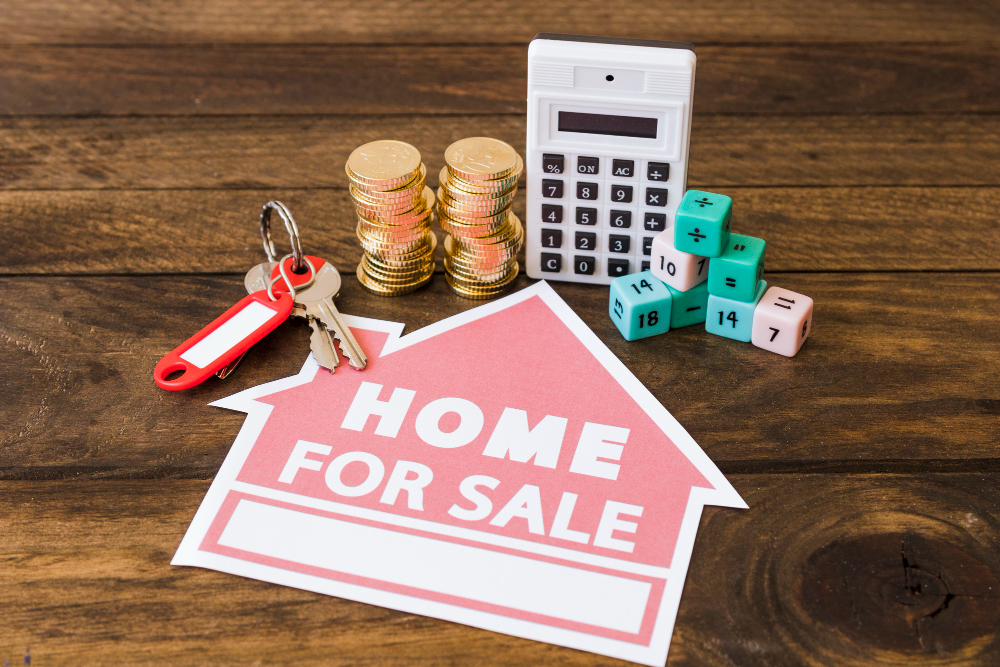Being a landlord in New Zealand is a rewarding journey, but managing your tax obligations can sometimes feel like navigating a maze.
One common worry is whether you’re missing out on deductions that could save you money. This guide breaks everything down into simple, everyday language, helping you understand claimable expenses and how to stay organized.
By the end, you’ll feel confident tackling tax season and keeping more of your hard-earned rental income.

Common Questions New Zealand Landlords Ask About Taxes
When it comes to taxes, landlords often have a lot of questions.
Here are some of the most common concerns:
- What expenses can I claim to reduce my tax bill?
- What’s the difference between a repair and an improvement, and why does it matter?
- Do I need to keep every single receipt?
- Are there limits to what I can claim on my rental property?
- How do I handle tax changes or updates to the rules?
We’ll address all these questions and more, giving you practical tips you can apply right away.
The Basics: What Can Landlords Claim as Expenses?
As a landlord, you can claim many expenses that directly relate to earning rental income. Understanding these deductions can significantly reduce your tax burden.
Here are some key categories:
Rates and Insurance
You can claim the cost of:
- Council rates: These are a necessary expense to keep your property compliant.
- Insurance premiums: This includes landlord insurance, home insurance, and even contents insurance if the property is furnished.
Interest on Loans
If you’ve taken out a loan to buy or improve your rental property, the interest portion of your repayments is often deductible.
However, recent tax changes in New Zealand may impact how much you can claim, especially for residential properties, so check the latest rules or consult an expert.
Repairs and Maintenance
This category covers the costs of keeping your property in good working order.
Examples include:
- Fixing a leaky tap
- Repairing a damaged fence
- Painting or plastering walls
- Cleaning between tenancies
Tip: Always keep detailed records, including receipts and photos, to demonstrate that these expenses were for repairs, not improvements.
Professional Services
- Property management fees: If you hire a property manager to handle tenant issues, inspections, or rent collection, their fees are tax-deductible.
- Accounting fees: Paying a professional to prepare your rental income tax return? That’s deductible too.
Utilities
If you’re covering expenses like water, electricity, or gas for your tenants, these costs are claimable.
Make sure to separate personal usage if the property is partially occupied by you.
Depreciation on Assets
While you can’t depreciate the property itself anymore, you can still claim depreciation on certain assets like:
- Appliances (e.g., washing machines, refrigerators)
- Furniture for furnished rentals
- Heat pumps or air conditioning units
Travel Expenses
If you need to visit your rental property for inspections, maintenance, or tenant viewings, you may be able to claim travel costs.
This includes:
- Fuel or mileage (if using your personal vehicle)
- Public transport costs
Pro Tip: Keep a logbook to track the purpose and details of each trip to support your claims.
Repairs vs. Improvements: Why the Difference Matters
One of the most confusing aspects of tax deductions for landlords is distinguishing between repairs and improvements.
The distinction is critical because repairs are immediately deductible, while improvements often need to be depreciated over time.
Repairs
Repairs are costs incurred to restore something to its original condition.
Examples include:
- Fixing a broken window
- Replacing worn carpet
- Repairing a damaged roof after a storm
These expenses are directly related to maintaining the property’s current value and are fully deductible in the year they’re incurred.
Improvements
Improvements, on the other hand, enhance or upgrade the property’s value.
Examples include:
- Installing a new kitchen
- Adding a deck
- Upgrading the heating system
The cost of improvements is generally not immediately deductible but may qualify for depreciation over several years.
Example: If you replace a broken oven with a similar model, that’s a repair. But if you upgrade to a high-end oven with extra features, that’s an improvement.
Staying Organized: Record-Keeping Tips for Landlords
Good record-keeping is essential for maximizing your deductions and avoiding headaches during tax time.
Here’s what you should do:
What to Keep
- Receipts for every expense, no matter how small
- Bank statements and loan documents
- Property manager statements
- Invoices for repairs and maintenance
- Tax invoices for professional services (e.g., accountants)
How to Organize
- Use a dedicated folder (physical or digital) for each tax year.
- Consider accounting software tailored for landlords to track income and expenses.
- Scan or photograph receipts to avoid losing them.
Why It Matters
The IRD may request proof of your claims during an audit. Having organized records ensures you can substantiate your expenses and avoid penalties.

How Tax Law Changes Impact Landlords
New Zealand’s tax laws are constantly evolving, especially for landlords.
Recent changes have included:
- Restrictions on claiming mortgage interest for residential rental properties.
- Updates to bright-line property rules, which affect capital gains tax.
To stay ahead, subscribe to updates from the IRD or consult with a property-savvy tax professional regularly.
A Relatable Story: Emma’s Tax Journey
Emma owns a rental property in Christchurch. Last year, her tenants reported a leaking roof. She hired a roofing company to patch the leak, costing $1,200.
This expense was fully deductible as a repair.
While the roofers were there, Emma decided to add skylights, which cost $3,000.
The skylight expense was classified as an improvement and depreciated over several years.
Thanks to her accountant’s advice, Emma saved hundreds of dollars by correctly categorizing her expenses.
Common Mistakes to Avoid
To make the most of your tax deductions, avoid these pitfalls:
- Not keeping receipts: Verbal agreements or lost receipts can’t be claimed.
- Misclassifying expenses: Repairs vs. improvements can be tricky—consult a professional if you’re unsure.
- Claiming personal expenses: Only expenses directly related to the rental property are deductible.
- Forgetting to claim depreciation: Don’t miss out on deductions for assets like appliances or furniture.
Visual Tools to Simplify Tax Planning
Consider creating or using:
- Infographics: Show the difference between repairs and improvements at a glance.
- Checklists: Help landlords track essential documents for tax season.
- Videos: Short tutorials on record-keeping or understanding deductible expenses.
Conclusion
Navigating the tax obligations of being a landlord in New Zealand can feel daunting, but understanding what you can claim and how to stay organized makes a significant difference.
By keeping thorough records, leveraging professional advice, and staying informed about legislative changes, you can ensure that your rental property investment remains both profitable and compliant.
Remember, tax laws can change, so it’s always a good idea to consult with a tax professional who understands the New Zealand property market.
With the right approach, you’ll not only save money but also enjoy peace of mind when tax season rolls around.
Got questions or tips to share? Drop them in the comments below or share this guide with other landlords who might find it helpful! Together, we can make property management a smoother experience for everyone.